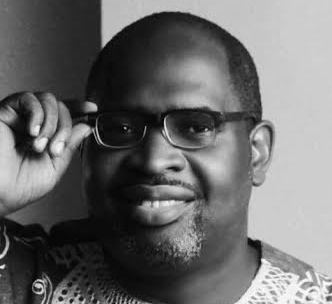A JAMB CBT centre in Lagos
In April 2025, Esther Oluwafayofunmi Oladele was reported missing while travelling from Epe to Ajah to sit her UTME. Later, Eminent Scholars Imperial Academy students, Onitsha, Anambra State, were declared missing on their way to Okigwe, Imo State, for the rescheduled 2025 UTME. While these UTME applicants were found eventually, these two cases show the risk candidates face when travelling to write examinations in Nigeria.
Of the 1.955 million candidates who sat this year’s UTME nationwide, 599 scored above 300. These candidates were below the minimum admission age of 16. The categories of students are the focus of this article.
Nigeria’s Constitution guarantees equality before the law, yet JAMB has chosen to treat these minors differently from their peers. JAMB has already discriminated against these candidates by imposing higher admission requirements. The Board wants these underaged candidates to score at least 320 in UTME (80%), achieve a minimum of 80% in post-UTME, and secure at least 80% (24/30 points) in a single WAEC or NECO sitting. Due to these more stringent conditions, of the 41,027 underage candidates who sat for the 2025 Unified Tertiary Matriculation Examination (UTME), more than 40,000 did not make it. Is it fair to introduce a higher requirement for these young candidates?
In February 2025, Justice Anthony O. Akpovi in Warri ruled that JAMB’s directive of 16 October 2024, which mandated tertiary institutions to admit only candidates who turn 16 by 31 August 2025, was null and void. The court also held that the policy discriminated against qualified candidates solely based on age, denying them equal educational opportunities. The court then ordered universities and JAMB to admit all qualified candidates who meet the requirements, regardless of their date of birth. It declared the policy unconstitutional. While the Joint Admissions and Matriculation Board has sought a stay of execution on a landmark ruling, the issue is still in court. So even this age issue is under litigation.
The Joint Admissions and Matriculation Board (JAMB) has added another hurdle to the progress of these young people. JAMB wants to screen these candidates to ensure they “balance academic excellence with cognitive maturity, prevent age falsification, and protect young candidates from undue parental pressure”. So, while the other older candidates would be exempted from this verification, these young candidates will be forced to undertake this. Isn’t this discriminatory?
Advertisement
JAMB will begin screening for over 500 of these candidates. These students are to appear physically in Lagos, Abuja and Owerri between September 22 and 26 for a screening exercise.
Some children, who could be barely 14, will be expected to travel long distances for a screening. Why is JAMB imposing costly and hazardous demands on families? Parents already stretched financially must now brave highways notorious for accidents and abductions. Several candidates have lost their lives while travelling for post-UTME examinations, while corps members en route to postings have perished in road crashes. Every extra journey raises the odds of an accident. Making people travel unnecessarily in today’s Nigeria is not merely imprudent but dangerous.
JAMB may argue that in-person interviews deter fraud or age-cheating. That concern is legitimate. But safer, more innovative options exist. The committee that decided on these screenings met virtually. The candidates could be screened virtually, too. If physical verification is unavoidable, JAMB has offices in all 36 states. Why can’t JAMB decentralize this process without endangering children? Even more baffling is JAMB’s inconsistency. A body that prides itself on computer-based testing insists on manual, centralized interviews.
Advertisement
Sadly, the special committee that managed this process would recommend physical examinations. Isn’t it ironic that a virtual committee would recommend a physical screening for children young enough to be their grandchildren? Why can’t the children be screened virtually, too? It would be safer, cheaper, and more efficient.
It’s important to ask how JAMB will conduct the screening. If the goals include screening these candidates to ensure they balance academic excellence with “cognitive maturity, prevent age falsification, and protect young candidates from undue parental pressure, what tools will be used to determine cognitive maturity?”. Would JAMB not violate the innocence of these children by asking personal and private questions to find out if they are under undue parental influence? In addition, what authority does JAMB have to “protect young candidates from undue parental pressure”? Is that not an over-reach? How does an examination body start to police parents and parental rights?
I am also surprised that four universities have reportedly said they won’t admit underage candidates. The schools are the Air Force Institute of Technology, Kaduna; Abubakar Tafawa Balewa University, Bauchi; University of Jos; and Osun State University. Is that fair, especially when underage candidates might have applied to the schools? Should the school be changing the rules in the middle of the game? In light of the court decision, shouldn’t these schools change their minds?
I would not send my child on such a journey as a parent. And as a nation, we must not. Protecting our children is not an optional policy preference; it is the baseline duty of any society. JAMB must reverse course now. Parents, educationists and the press must raise their voices before another family mourns. Protecting our children is not optional; it is our highest duty. JAMB must reverse course now.
Advertisement
Fawehinmi is a Human Resources and Change Management leader with extensive experience across Canada and Nigeria. He is a former Chair of Ontario HRPA’s Southwest Chapter, a CIPM Council Member, a SHRM Expert Panel, and an award-winning author and consultant.
Views expressed by contributors are strictly personal and not of TheCable.












